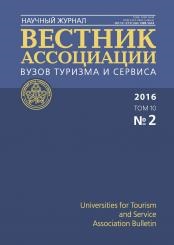The article is a description of the 2D didactical methodology as applied to HE settings. The 2D didactics concept, «Gzhel-1», was developed at the Gzhel state artistically-industrial institute with the view to developing more refined common cultural and professional competences of undergraduate students majoring in tourism. The methodology aims at developing individual capabilities of students, an integration of teacher-facilitated in-class, individual and joint learning ensuring a collective as well as individual content processing, constructing knowledge, a creation of new individually meaningful knowledge, and acquiring socially and professionally valuable competences [1]. The author supports the general view of the use of mobile devices (computers, smart phones, tablet PCs) as a currently important contributor to new educational technologies implementation. Mobile devices afford student access to education-tailored applications: «Gzhel-1» methodology, as applied in «Computer sciences» and «Information technologies in the service sphere» classes, assumes that students receive discipline-specific tasks, as well as tasks involving the regional ecological component. From the author’s perspective, the influence of students’ knowledge and skills acquired through the methodology serves to decrease social tension in the Gzhel zone, as the content of the Gzhel-1-supported disciplines includes research tools and a range of mechanisms of enhacing the quality of Gzhel’s eco-surroundings. The article provides a description of the major eco-surroundings challenges such as: drinking water quality, electromagnetic fields, air pollution, historical landscape alterations, the status of unique natural monuments, clay extraction, anthropogenic load, and radioecological situation.
Gzhel state artistically-industrial institute, undergraduates majoring in service and tourism, ecology, environmental education, environmental literacy.
Введение
Гжельская зона Раменского района расположена в 50 км от Москвы на юго-востоке Московской области. Население составляет 19,5 тыс. человек. Зона охватывает 34 населенных пункта (деревни, села, поселки городского типа). Одним из перспективных направлений развития Гжели является туризм.
Важнейшими управленческими задачами в современном туризме являются обеспечение его безопасности и регулирование туристской деятельности, что представляет собой сложную комплексную управленческую задачу. Обеспечение устойчивого управления развитием туризма и рекреационной деятельностью ставит перед собой следующие задачи:
- сохранение целостности ландшафта и туристско-рекреационной ценности территории;
- обеспечение сохранности природных комплексов и объектов;
- обеспечение безопасности туристов;
- обеспечение возможности оперативного регулирования рекреационных нагрузок;
- согласование режимов посещения и правил поведения на объектах рекреации.
В последние годы все более остро в туристской и рекреационной деятельности ставится вопрос о безопасности на туристско-рекреационных территориях. Причем туризм и рекреация должны быть безопасными во всех отношениях, независимо от факторов и причин формирования рисков и угроз всевозможного характера.
1. Atabekova, A. A., and Belousov, A. V. V poiske otvetov na vyzovy obrazovaniia XXI veka [Searching for ways to meet the educational challenges of the 21st century]. Vysshee obrazovanie segoania [Higher education today]. 2013. № 8. pp. 19-24.
2. Zernov, V. A., and Minaev, V. A, Budushchee nauki i obrazovaniia - za setevymi nauchni-obrazovatel’nymi konsortsiumami [The future of science and education lies in the networked scientific and educational consortiums]. Vysshee obrazovanie segoania [Higher education today]. 2013. № 10. pp. 2-5.
3. Il’kevich, B. V. O perspectivakh razvitiia khudozhestvenno-promyshlennogo obrazovaniia v Gzheli [On the development prospects of artistically-industrial education in Gzhel]. Administrator obrazovaniia [Educational administrator]. 2012, № 20. pp. 70-74.
4. Sosedov, G. A. Ekonomicheskie otnosheniia sistemy obrazovaniia: modernizatsiia v usloviiakh formirovaniia informatsionnoi ekonomikik [Economic relations in the system of education: modernization in the context of information economy formation]. Avtoreferat dissertatsii doktora ekonomicheskikh nauk [Doctoral thesis: author’s abstract]. Tambov, 2010. p. 46.
5. Federal’nyi gosudarstvennyi obrazovatel’nyi standart po napravleniiu podgotovki 100400 turizm (kvalifikatsiia (stepen’) «bakalavr») [Federal state educational standard of the higher professional education in the direction of preparation 100400 «Tourism» (qualification (degree) «Bachelor»)], 2013.
6. Iagodin, G. A. Ekologiia Moskvy i ustoichivoe razvitie [Moscow’s ecology and sustainable development]. Moscow: MIOO Publ., 2008. p. 351.
7. Tsekhanovich, O. M. Excel: Sbornik zadach [Excel: problem book]. Gzhel: GGKhPI, 2007. p. 48.





